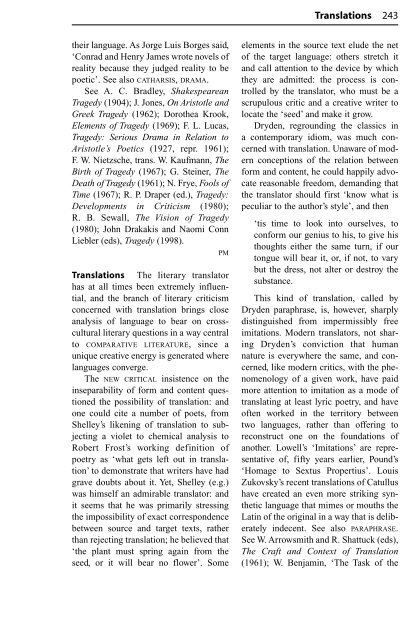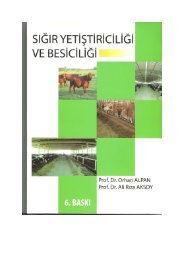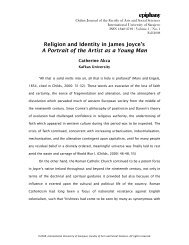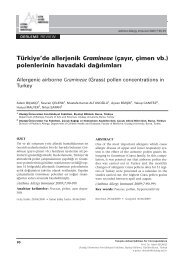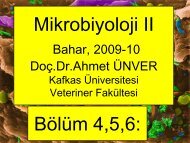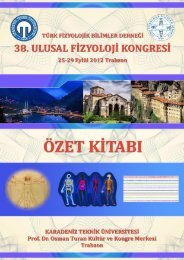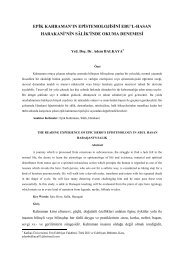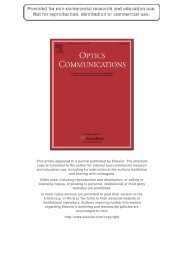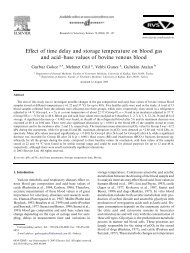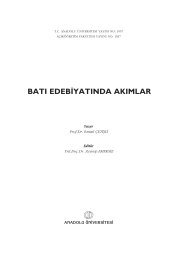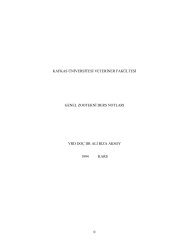The Routledge Dictionary of Literary Terms
The Routledge Dictionary of Literary Terms
The Routledge Dictionary of Literary Terms
You also want an ePaper? Increase the reach of your titles
YUMPU automatically turns print PDFs into web optimized ePapers that Google loves.
their language. As Jorge Luis Borges said,<br />
‘Conrad and Henry James wrote novels <strong>of</strong><br />
reality because they judged reality to be<br />
poetic’. See also CATHARSIS, DRAMA.<br />
See A. C. Bradley, Shakespearean<br />
Tragedy (1904); J. Jones, On Aristotle and<br />
Greek Tragedy (1962); Dorothea Krook,<br />
Elements <strong>of</strong> Tragedy (1969); F. L. Lucas,<br />
Tragedy: Serious Drama in Relation to<br />
Aristotle’s Poetics (1927, repr. 1961);<br />
F. W. Nietzsche, trans. W. Kaufmann, <strong>The</strong><br />
Birth <strong>of</strong> Tragedy (1967); G. Steiner, <strong>The</strong><br />
Death <strong>of</strong> Tragedy (1961); N. Frye, Fools <strong>of</strong><br />
Time (1967); R. P. Draper (ed.), Tragedy:<br />
Developments in Criticism (1980);<br />
R. B. Sewall, <strong>The</strong> Vision <strong>of</strong> Tragedy<br />
(1980); John Drakakis and Naomi Conn<br />
Liebler (eds), Tragedy (1998).<br />
PM<br />
Translations <strong>The</strong> literary translator<br />
has at all times been extremely influential,<br />
and the branch <strong>of</strong> literary criticism<br />
concerned with translation brings close<br />
analysis <strong>of</strong> language to bear on crosscultural<br />
literary questions in a way central<br />
to COMPARATIVE LITERATURE, since a<br />
unique creative energy is generated where<br />
languages converge.<br />
<strong>The</strong> NEW CRITICAL insistence on the<br />
inseparability <strong>of</strong> form and content questioned<br />
the possibility <strong>of</strong> translation: and<br />
one could cite a number <strong>of</strong> poets, from<br />
Shelley’s likening <strong>of</strong> translation to subjecting<br />
a violet to chemical analysis to<br />
Robert Frost’s working definition <strong>of</strong><br />
poetry as ‘what gets left out in translation’<br />
to demonstrate that writers have had<br />
grave doubts about it. Yet, Shelley (e.g.)<br />
was himself an admirable translator: and<br />
it seems that he was primarily stressing<br />
the impossibility <strong>of</strong> exact correspondence<br />
between source and target texts, rather<br />
than rejecting translation; he believed that<br />
‘the plant must spring again from the<br />
seed, or it will bear no flower’. Some<br />
Translations 243<br />
elements in the source text elude the net<br />
<strong>of</strong> the target language: others stretch it<br />
and call attention to the device by which<br />
they are admitted: the process is controlled<br />
by the translator, who must be a<br />
scrupulous critic and a creative writer to<br />
locate the ‘seed’ and make it grow.<br />
Dryden, regrounding the classics in<br />
a contemporary idiom, was much concerned<br />
with translation. Unaware <strong>of</strong> modern<br />
conceptions <strong>of</strong> the relation between<br />
form and content, he could happily advocate<br />
reasonable freedom, demanding that<br />
the translator should first ‘know what is<br />
peculiar to the author’s style’, and then<br />
‘tis time to look into ourselves, to<br />
conform our genius to his, to give his<br />
thoughts either the same turn, if our<br />
tongue will bear it, or, if not, to vary<br />
but the dress, not alter or destroy the<br />
substance.<br />
This kind <strong>of</strong> translation, called by<br />
Dryden paraphrase, is, however, sharply<br />
distinguished from impermissibly free<br />
imitations. Modern translators, not sharing<br />
Dryden’s conviction that human<br />
nature is everywhere the same, and concerned,<br />
like modern critics, with the phenomenology<br />
<strong>of</strong> a given work, have paid<br />
more attention to imitation as a mode <strong>of</strong><br />
translating at least lyric poetry, and have<br />
<strong>of</strong>ten worked in the territory between<br />
two languages, rather than <strong>of</strong>fering to<br />
reconstruct one on the foundations <strong>of</strong><br />
another. Lowell’s ‘Imitations’ are representative<br />
<strong>of</strong>, fifty years earlier, Pound’s<br />
‘Homage to Sextus Propertius’. Louis<br />
Zukovsky’s recent translations <strong>of</strong> Catullus<br />
have created an even more striking synthetic<br />
language that mimes or mouths the<br />
Latin <strong>of</strong> the original in a way that is deliberately<br />
indecent. See also PARAPHRASE.<br />
See W. Arrowsmith and R. Shattuck (eds),<br />
<strong>The</strong> Craft and Context <strong>of</strong> Translation<br />
(1961); W. Benjamin, ‘<strong>The</strong> Task <strong>of</strong> the


